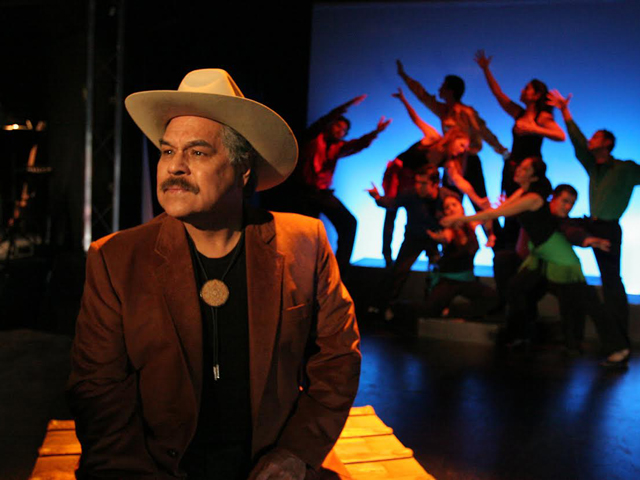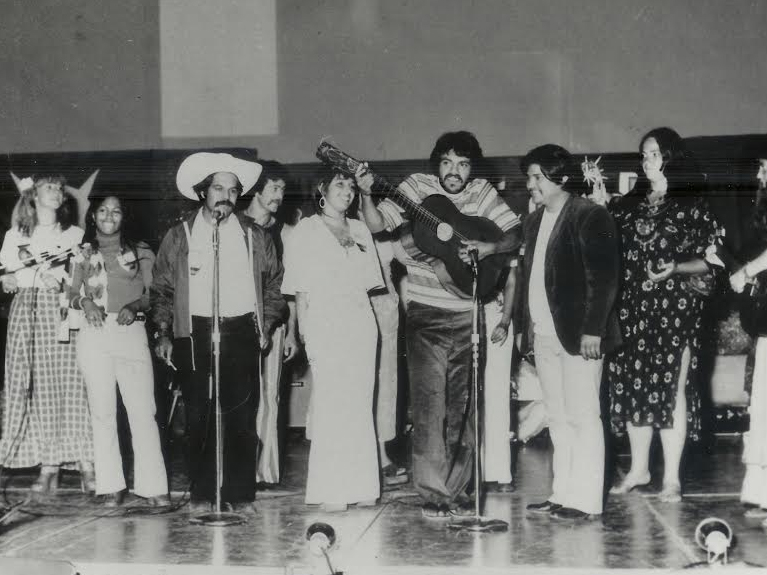Do you remember reading the play, “Zoot Suit” in high school or watching the movie “La Bamba” (1987), based on the life of 1950’s rocker Ritchie Valens, starring Lou Diamond Phillips and Esai Morales? They were both written by multi-award winning playwright and director, Luis Valdez.
He is also the founder of the longest running Chicano theater in the U.S. El Teatro Campesino is located in the rural community of San Juan Bautista, Calif. – approximately 150 miles northwest from where he was born to migrant farm worker parents.
“I was born in 1940 in a labor camp in Delano…the west side of Delano was separated by the railroad tracks,” says Valdez, now 74. “The Asians, Mexicans, and African Americans were on the west side, and the White people lived on the east side of the tracks.”
Valdez says he remembers understanding as early as age six, that he was born into a segregated land.
Years later, in 1955, he remembers the segregation continued. There was a young man who was called “C.C.” who decided to sit in the middle of the movie theater and not in the section designated for “non-whites.”
“The police took him away,” says Valdez. “There was no law – it was custom. They released him, and the following week, a whole group went and sat in the middle of the theater. Years later, I went to work with the UFW [United Farm Workers], and my mom said, ‘Don’t you know who C.C. is? He is Cesar Chavez.”
It was in 1965, while volunteering with the UFW, that Valdez founded El Teatro Campesino – a theater troupe for farm workers and students. The theater, he says, served as a way to inform, educate and also provide laughter during very hard times for strikers.
“I’ve seen the evolution of theater, film and television,” says Valdez regarding his continually growing work with El Teatro Campesino, which still continues today. “My focus has been on historical periods so people can know who we are today…now we’re focused on developing the young.”
Valdez says it was school that changed the trajectory of his life. It was his mom who sent him and his brother to school one day with their lunches packed in a little brown paper bag – a luxury, he says, in those days.
“I used to take care of my little bag, but one day my bag was missing,” Valdez remembers back to the first grade. “My teacher said, ‘I took it. It’s for a mask I’m making for a play.’ I forgave her for the bag, and the next week, I auditioned and I got my first part in a play – a monkey. I was looking forward to my first debut in front of the world on a Monday. I told my mom, and she said, ‘We’re leaving Friday. We were being evicted.”
Valdez says he was six and devastated. However, that episode in his life was crucial, because it gave him the insatiable desire to pursue theater for the rest of his life.
“It was at San Jose State University that I began to write and produce,” says Valdez. “I wrote my first full-length play there, and just last month, my son produced ‘Zoot Suit’ – it ran two weeks. It’s come full circle – 50 years after I graduated.”
What piece of life advice would Valdez tell his younger self if he could?
“I would tell my young self, and others, that it’s important to develop people skills…It comes with giving respect when respect is due. Genius is not an excuse to mistreat other people. A true genius is a genius of compassion and humility…I’m happy to say that El Teatro Campesino is composed of 12 people who have been together the past 40 years. They have had other careers but are still pitching in and helping out. In an odd way, that keeps us young. That’s a great feeling. It’s amazing to me. They’ve become maestras and maestros in their own right…We got a slow start incorporating women into the group, but some of our greatest collaborators have been with women. I would talk to my younger self about the importance of that…These are lessons they I’ve learned along the way. We are all human, and we all have a heart.


